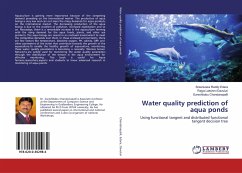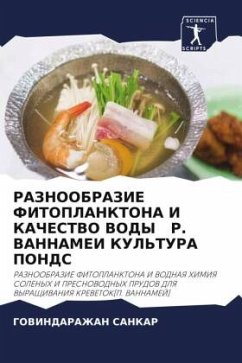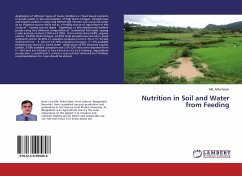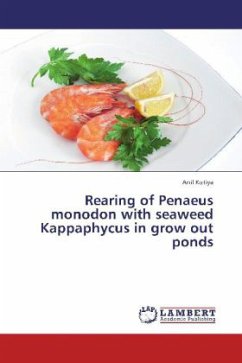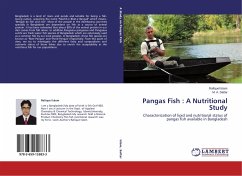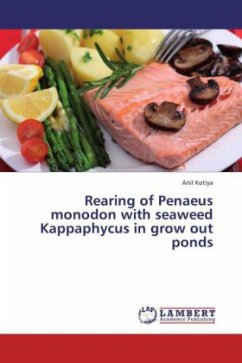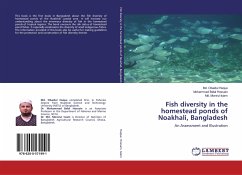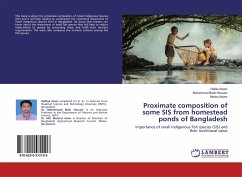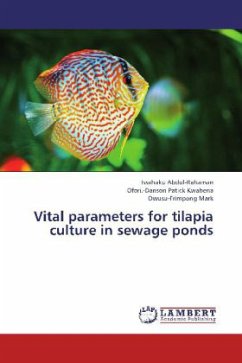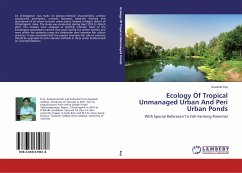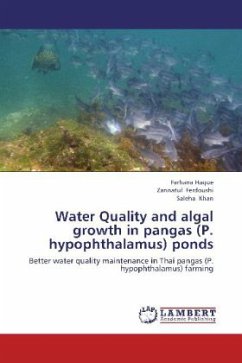
Water Quality and algal growth in pangas (P. hypophthalamus) ponds
Better water quality maintenance in Thai pangas (P. hypophthalamus) farming
Versandkostenfrei!
Versandfertig in 6-10 Tagen
32,99 €
inkl. MwSt.

PAYBACK Punkte
16 °P sammeln!
A research work was undertaken to study on water quality and algal growth in Thai pangas, (P. hypophthalamus) ponds. The experiment was designed with four treatments and each treatment with three replications. Treatment 1 was designed with monoculture of Thai pangas where stocking ratio was 120 pangas/decimal. The other three treatments were designed with composite culture of Thai pangas with Silver carp and stocking ratios were 1:1 with fence, 2:1 with fence and 1:1 without fence in treatments 2, 3 and 4 respectively. Among different physico-chemical parameters, the concentrations of nitrate-...
A research work was undertaken to study on water quality and algal growth in Thai pangas, (P. hypophthalamus) ponds. The experiment was designed with four treatments and each treatment with three replications. Treatment 1 was designed with monoculture of Thai pangas where stocking ratio was 120 pangas/decimal. The other three treatments were designed with composite culture of Thai pangas with Silver carp and stocking ratios were 1:1 with fence, 2:1 with fence and 1:1 without fence in treatments 2, 3 and 4 respectively. Among different physico-chemical parameters, the concentrations of nitrate-nitrogen and phosphate-phosphorus were found higher in treatment 1. The higher amount of nutrients in monoculture ponds enhanced the plankton biomass especially Cyanophyceae, Euglenophyceae and Bacillariophyceae. Throughout the culture period identified dominant bloom forming genus were Microcystis and Gloeocapsa, which were found to be responsible for deteriorating the water quality in Thaipangas monoculture ponds. On the other hand, better water quality was observed in treatment 4 with composite culture of Thai pangas and Silver carp ponds with a stocking ratio of 1:1 without fence.



